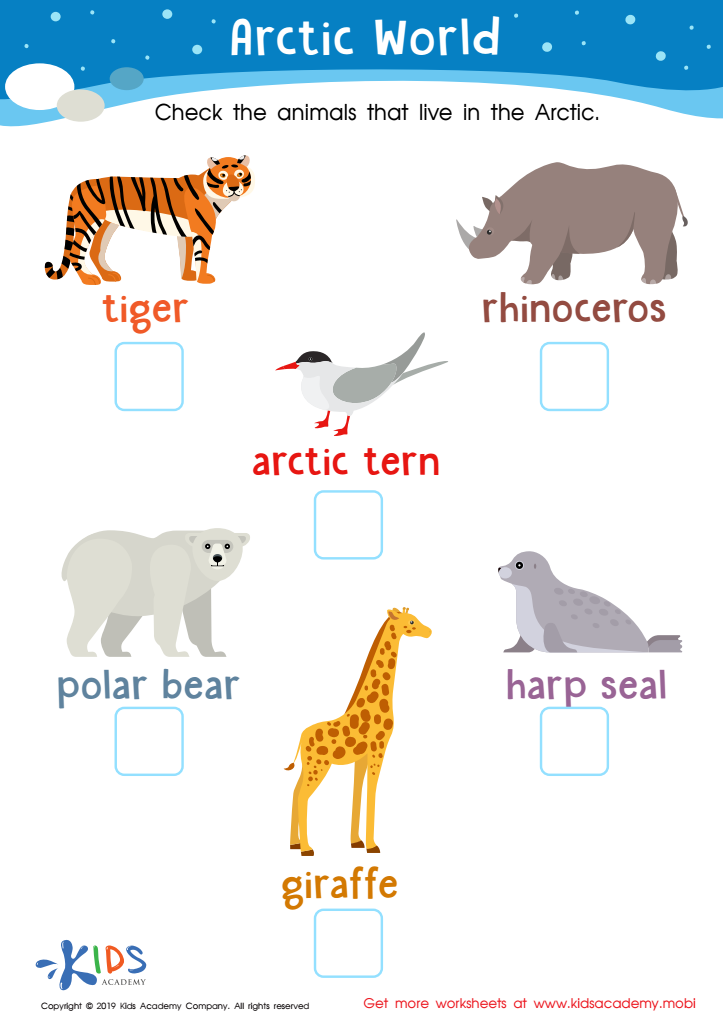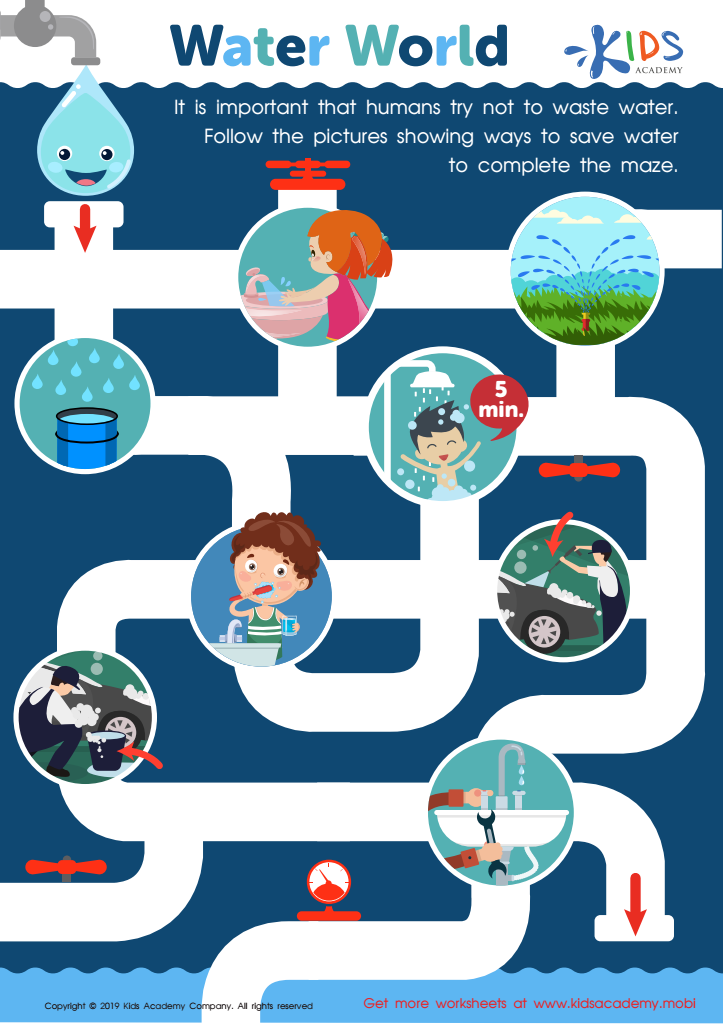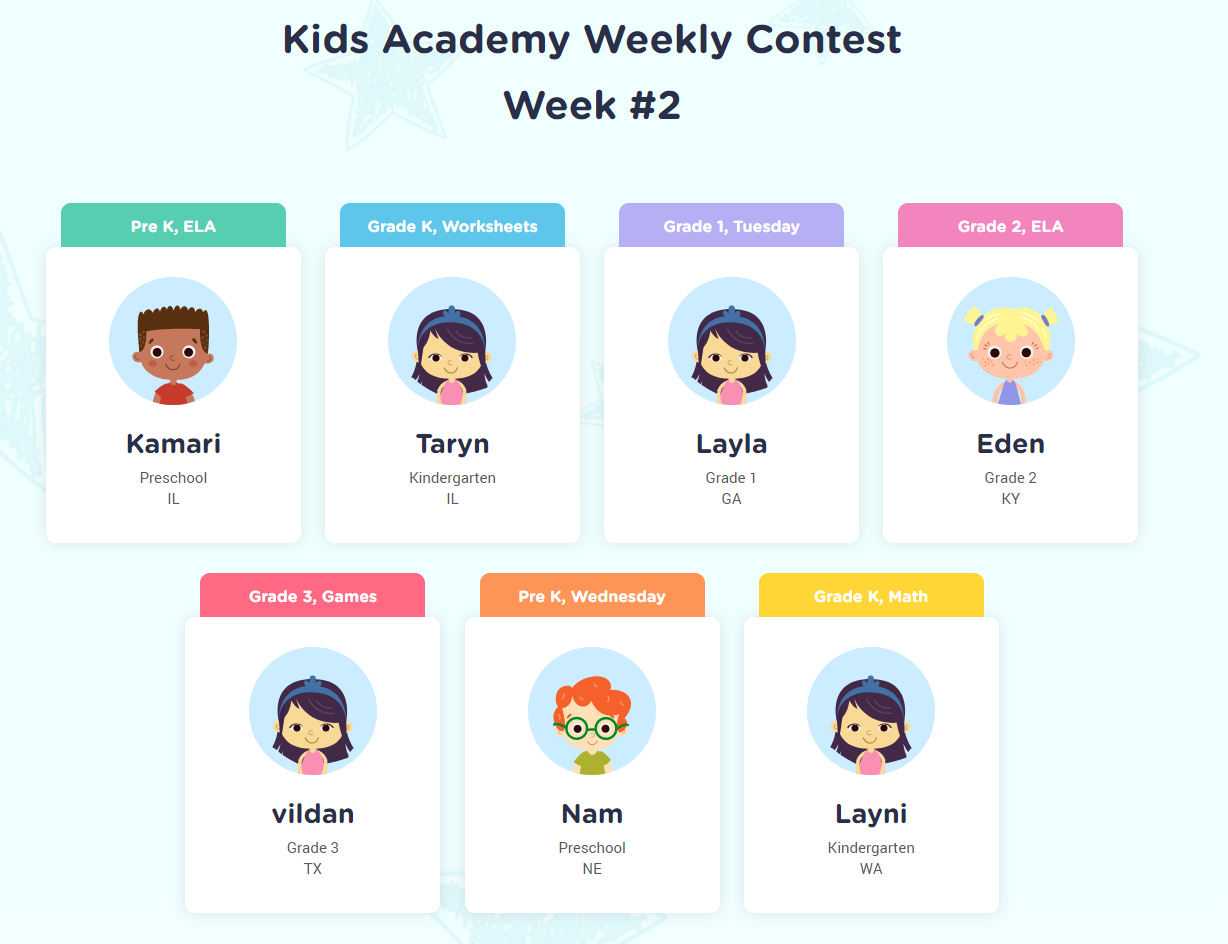Understanding ecosystems Normal Science Worksheets for Ages 3-7
5 filtered results
-
From - To
Unlock the wonders of nature with our "Understanding Ecosystems" Normal Science Worksheets designed for Ages 3-7! These engaging, age-appropriate printables introduce young learners to the fascinating world of ecosystems. Through fun activities and vibrant illustrations, children will explore how plants, animals, and their environments coexist and interact. Perfect for early grade science enrichment, these worksheets foster a love for nature, build critical thinking skills, and support curious minds. Join us at Kids Academy to nurture your child's scientific curiosity and lay a solid foundation for lifelong learning!


Ecosystems: Assessment 1 Worksheet


Arctic World Worksheet


Ecosystems: Assessment 2 Worksheet


Water World Worksheet


Animals and Plants: Assessment 1 Worksheet
Introducing young children, ages 3-7, to the concepts of normal science, including ecosystems, is incredibly important for their development and understanding of the world around them. At this formative stage, children are naturally curious, and their ability to absorb new information is at its peak. By teaching them about ecosystems, parents and teachers can tap into this curiosity and foster a lifelong interest in science and nature.
Understanding ecosystems helps children comprehend how living things, including plants, animals, and humans, interact with each other and their environment. This foundational knowledge nurtures respect for nature and promotes environmental stewardship from an early age. Moreover, such education can improve critical thinking skills as children learn to see relationships and patterns within different ecological systems.
Another benefit is the development of empathy and social responsibility. By understanding that all life forms are interconnected, children are more likely to develop a compassionate and considerate outlook, recognizing the importance of protecting nature and making responsible choices.
Teachers and parents also get a unique opportunity to engage children using interactive and hands-on activities, such as nature walks, simple observational experiments, or even small classroom projects. Such activities not only solidify academic concepts but also contribute to emotional and social growth.
In summary, early science education about ecosystems lays down a solid foundation for lifelong learning, fosters environmental responsibility, and enriches overall cognitive development.
 Assign to My Students
Assign to My Students




















